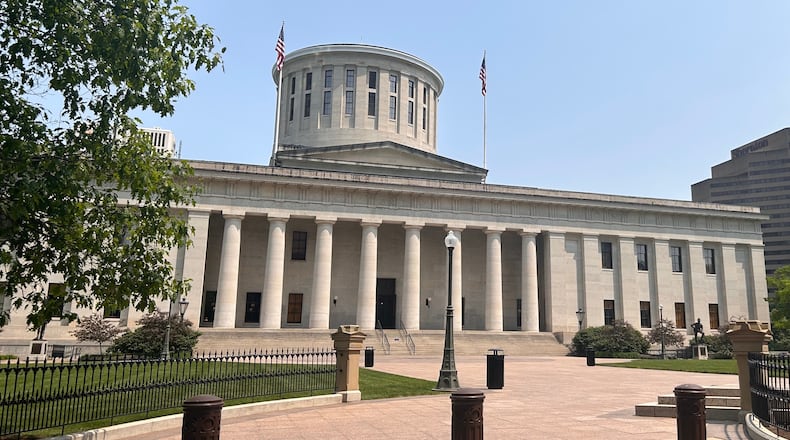County budget commissions under state law are a minimum three-member board in all Ohio counties consisting of that county’s auditor, treasurer and prosecuting attorney, though some counties have an expanded board.
Senate President Rob McColley, R-Napoleon, told reporters that the provision is meant to make county budget commissions’ existing authority even more explicit in the hopes that it will “empower” commissions to take action when property taxes become too high.
He explained that this authority is meant to come into play when a property tax levy generates more money than intended or needed.
“There are some circumstances where, when a levy was passed, it may not have been conceived that the money it would generate would be as much as it eventually does generate,” McColley said. “In some cases, we see that result in rising carryover balances for school districts or other local government entities that are well beyond what they ever anticipated getting.”
Carryover balances have become a target for Senate and House Republicans alike when trying to solve the state’s property tax problems. Both chambers’ budget drafts would cap the fiscal reserves a school district could carry; the House wants the cap to be at 30% of the district’s prior year’s operating cost, while the Senate wants the cap at 50%.
In this county budget commission provision from the Senate, commissions would no longer be barred from “considering the status of reserve balance accounts or other certain unexpended funds when determining whether to reduce a political subdivision’s taxing authority,” state budget documents say.
Instead, county budget commissions would be required to consider a taxing entity’s carryover reserves, given that the provision would only allow the commission to reduce the revenue collected from a levy if that taxing entity had the reserves to handle such a reduction.
Despite the idea originating in the Senate, it won over Ohio House Republicans.
“Many times a levy goes on because a certain amount of money is needed, and the amount of money raised is far in excess,” House Speaker Matt Huffman, R-Lima, told reporters. “I think we’re seeing that a lot now because of these valuations have changed (the collected revenue) dramatically.”
Huffman said it’s rare for a county budget commission to actually exercise this power “because the folks who are getting the money go to county officials and say, ‘We don’t want you to do that.’”
Rep. Allison Russo, D-Upper Arlington, who led the House Democratic caucus throughout most of the budget process, told this outlet that the plan had some logistical issues and she worried it would increase the “politically-charged” decisions at a county level.
“We have concerns. Many people have concerns. We’ve heard from many elected local official. Let’s remember, school districts, for example, cross multiple counties in some cases,” Russo said. “Are you overruling the will of voters within that particular school district by people that they don’t even get to elect?”
For more stories like this, sign up for our Ohio Politics newsletter. It’s free, curated, and delivered straight to your inbox every Thursday evening.
Avery Kreemer can be reached at 614-981-1422, on X, via email, or you can drop him a comment/tip with the survey below.
About the Author

